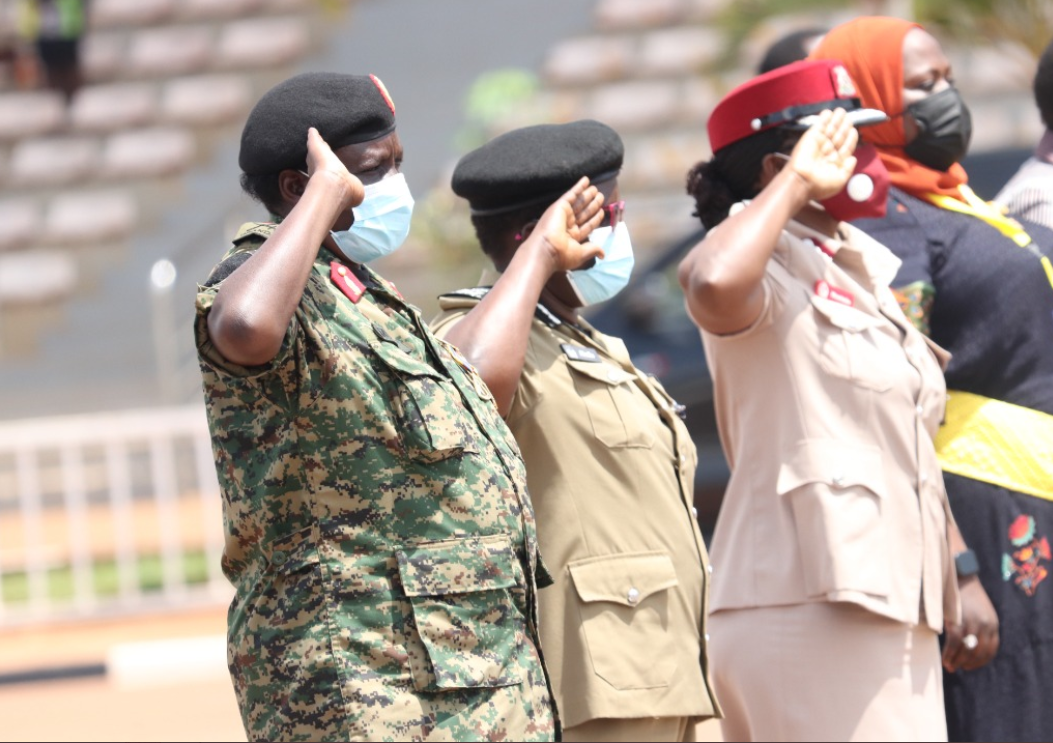How are we faring on Women emancipation?

Female officers from Ugandan armed security agencies salute President Museveni during the International Women's Day celebrations at Kololo Independence Grounds on March 8, 2022. PHOTO/HANDOUT/POLICE
What you need to know:
- The issue: Women emancipation
- Our view: This demand for emancipation should be multi-pronged; by both the men and women. We hope that by this time next year, we will be a step – or more – ahead.
Today, Uganda joins the rest of the world to commemorate the International Women’s Day. Celebrated this year under the theme “Gender Equality Today for a Sustainable Tomorrow”, the day seeks to point out the achievements and contributions of women and girls in different spheres of society.
Generally speaking, the day recognizes the sacrifices, work and role of women in society and promotes gender equality and equity.
The United Nations Development Programme in Uganda says gender equality is not only a fundamental human right, but also a pre-condition for sustainable development. The agency avers that providing women and girls with quality education, health care, decent work, access and ownership rights over property and technology, and equal participation in political and economic decision-making processes will lead to social, economic and environmental sustainability across the globe.
Over the years, Uganda has made tremendous efforts in promoting women emancipation through affirmative action in politics, education, and many other sectors. And to buttress these efforts, the 1995 Constitution stresses the need for equality between men and women.
The Uganda Women Empowerment Programme (Uwep), for example, is one of such programmes. The government initiated this in addition to many other schemes to help improve the social economic well being of rural womenaged between 18 and 65 years. However, even with all the endeavours, women still face a lot of challenges, especially in rural communities. For instance, many women still experience financial exclusion, gender based violence, employment imbalance, and asset ownership deprivation.
The first deputy prime minister and minister for East African Affairs, Ms Rebecca Kadaga, yesterday underscored the need for sustained push for women rights, especially at workplaces.
“Today, women still have to make a choice between their babies and their jobs, [which should not be the case if we want to attain gender equality],” she said. She added that she had continued to advocate for better facilities for women in education institutions and urged women to continue breaking the barriers. There have been complaints on social media by women who say they are only thought of to appear in panels of discussion in March and no one gives them an ear during the rest of the year.
Much as we continue pushing the relevant authorities to implement policies that uplift the girl child, we also call upon the women in leadership and places of influence to step up and help level up the field. This demand for emancipation should be multi-pronged; by both the men and women.
We hope that by this time next year, we will be a step – or more – ahead.



